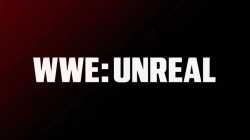Quoted By:
>Paul Levesque is at times happy to be portrayed as “Papa Haitch” the good guy boss who hugs Rhea Ripley moments after she tears her shoulder and tells her everything is going to be alright. But who doesn’t he hug is perhaps the question we might be more keen to ask.
>In the writer’s room segments, filmed artfully with “hidden” cameras, the conversation often resembles those moments in movies where the side characters do an entirely unnatural sounding exposition dump.
>“It’s one of the biggest shows, in company history, Cody Rhodes, the fuckin’ Franchise player, every reason to have him on the show, [but] we don’t have half a dozen heels..everybody’s got stories” says VP Creative Writing Jonanthan Baeckstrom at one point, helpfully summarising the issue at hand for the audience at home while being sure to remind his Boss who Cody Rhodes is. Perhaps they do really speak like that to each other; if the creative team’s discussions just consisted of anodyne soundbites, then it might explain why WWE’s output is so bland these days.
>The introduction of CM Punk provides an opportunity for some grit. Indeed, with a policy of full disclosure, you could probably make the Punk/Levesque antagonism this generation’s version of Vince McMahon & Bret Hart.
>Instead, Levesque is in teacher mode, feeling that “how [Punk] communicated with others needed to change” and welcoming the reformed bad boy back into the fold like he’s Michelle Pfeiffer in Dangerous Minds. Instead of making hay from the real-life controversy, the beef of 2014 is acknowledged, some of the more gritty details are largely glossed over, including Punk’s famous claim that he was fired on his wedding day and the more serious allegations of medical impropriety that led to a lawsuit against him.

